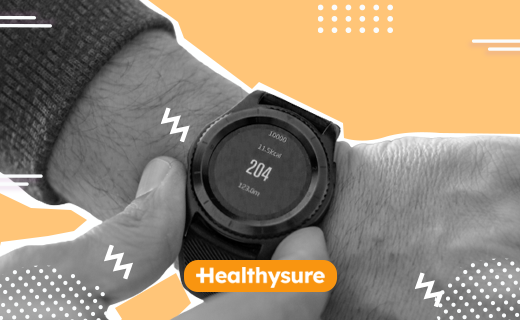One example of an age-old question is whether counting calories is the right way to lose weight. This question, much like nature versus nurture, has had pros and cons spoken on both ends. But still, the question remains – is calorie counting really the best way for all? Before we get into this monumental question, let’s have a look at what is the definition of calories. Generally, calories can be described in two ways – calorie intake and calories burned. Calorie intake refers to the amount of energy that is generated when one eats food or consumes beverages. Calories burned, on the other hand, are defined as the energy that is used by our bodies during activity. This activity need not be physical like working out or playing sports. This also includes breathing, blinking, thinking, and so on.
When speaking of weight loss, the generally suggested way is to consume fewer calories than you are burning. For instance, if you are burning 300 calories, it is suggested that your calorie intake be lesser than 300. So coming back to the question at hand – with the added work stress, is the stress of counting calories worth it or not? Not to mention, with the world being in the middle of the festival season, festive binge-eating is something that has been on everyone’s minds. But despite all of it should you be counting your calories?
Table of Contents
The Pros of Calorie Counting:
Pattern Recognition
If for nothing else, counting calories and being mindful of what you eat throughout the day helps you pinpoint your eating patterns. Being aware of your eating patterns is something that one should be in knowledge of even if they are not trying to lose weight. Recognizing your eating patterns is just as important as working out, or doing anything to reduce weight, if not more important.

Getting a Baseline
Being mindful of your eating habits and how many calories you eat will give you a baseline to work with. What this means is that, if you are looking to drop some weight, this will help you navigate your way around your eating habits and will give you a solid baseline that you can work with. Based on this baseline, you can decide what kind of diet and workout might be best for you. For instance, if after your observations you come to the realization that your protein intake is too less, you can adjust your diet accordingly and make sure that you are getting as much protein as you need.

Can Be A Motivator

Once you have counted your calories and implemented diet plans and a workout regime according to them, you will see some results. The chances of this happening are very high. So once you see some positive outcomes you will be motivated to keep doing what you are doing and attain your body weight goals. This way, counting calories can be one of the biggest motivators that you might come across in your weight lose journey.
But that is not the only side to it. Just like any other coin, this one also has a flip side. One of the biggest cons of calorie counting is that it has been associated with eating disorders. Studies have shown that people with pre-existing eating disorders have gotten deeper into their disorder because of calorie counting. The general feeling associated with counting calories (especially in cases of eating disorders) is guilt, shame, and anxiety. All of these only worsen one’s relationship with food. It was also noticed that counting calories have resulted in an increase in new cases of eating disorders. If you are someone suffering from an eating disorder or are on the brink of one, counting calories might just be your worse enemy.
In Conclusion
Everyone is going to react to counting calories differently. If you feel like keeping track of your calories might not be good for you, we suggest opting for intuitive eating instead. This simply means eating when you feel hungry, not overeating, but also not starving yourself.




